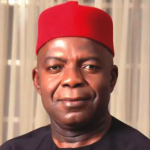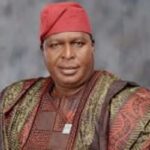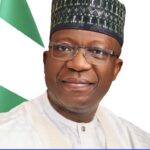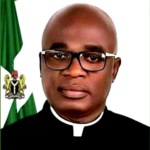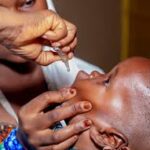By Segun Giwa
The United Nations Children’s Fund (UNICEF) has called for a pushback against the barriers keeping young girls from acquiring digital skills and technology in Nigeria.
The Chief of the UNICEF Lagos Field Office, Celine Lafoucrière, made the call in her opening remarks at a two‑day media dialogue to support Advocacy for Accelerated Digital Learning for Nigerian Youths on Wednesday in Lagos.
The News Agency of Nigeria (NAN) reports that the programme was organised by UNICEF in collaboration with the Oyo State Ministry of Information.
Lafoucrière said that there was a need to close the gender gap in technology, by reaching out to the most marginalised communities.
Referencing the current statistics of out‑of‑school children in the country, she said that more than 10 million primary school children and 18 million junior‑ and secondary‑school students are not in school.
“So what this means is that over 18 million Nigerian youths are not in school nor digitally enabled.
“It also means that 15 out of 100 girls in Nigeria are not in school, nor in training, nor in employment,” she said.
According to her, by 2030, Nigeria is projected to have more than 126 million children and adolescents in total.
“That is a huge number. This is the largest youth population in the whole of Africa. This can be our greatest strength.
“The difference is whether we give them the skills to thrive, find jobs for tomorrow and adequately prepare them for the world they will face,” she said.
She, however, said that more than two million children and youths across 21 states—about 300,000 in the South-West—are already using the Nigerian learning‑hub spaces.
Lafoucrière also said that more than 62,000 girls and young women have completed digital courses, adding that the Federal Government has shown commitment through the national policy on skills development.
She, however, appealed to the media to use their platforms to challenge the idea that technology belongs only to the privileged.
“You can demand that leaders invest in what our children need to compete on a global level.
“So, what I want to urge you to do today is to use your voice and your platforms to help me—and us at UNICEF—in this advocacy work.
“Use your platforms to ensure that every young Nigerian, whether male or female, rural or urban, rich or poor, gets access to digital skills.
“Hold everyone accountable. Tell the girls and their parents that they also have the right to digital education.
“Together, we can build a Nigeria where every single child is digitally ready.
“Every young person is employable, and every adolescent can compete anywhere in the world,” she said.
In his remarks, the Permanent Secretary of the Oyo State Ministry of Information, Mr Rotimi Babalola, appreciated the media for their role in advocating children’s rights.
Babalola said that the workshop would allow discussions on ways to advance education with current technological trends like artificial intelligence.
Mr Martins Opeyemi, Director of Policy, Planning and Research at the Lagos State Ministry of Education, said digitalisation was the new order of the day in Lagos schools.
Mr Daudu Adekunle, Deputy Director of the Lagos State Universal Basic Education (SUBEB), also said that the state government was investing more in digital learning in schools. (NAN)(www.nannews.ng)
Edited by Victor Adeoti

